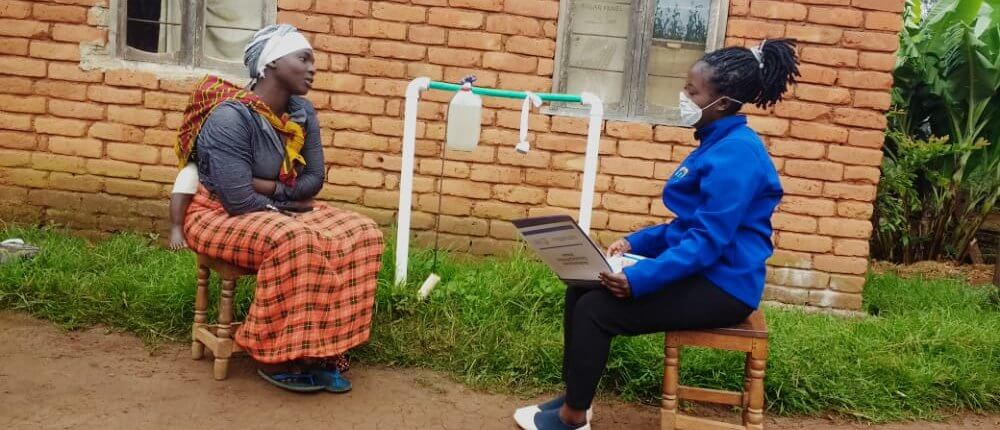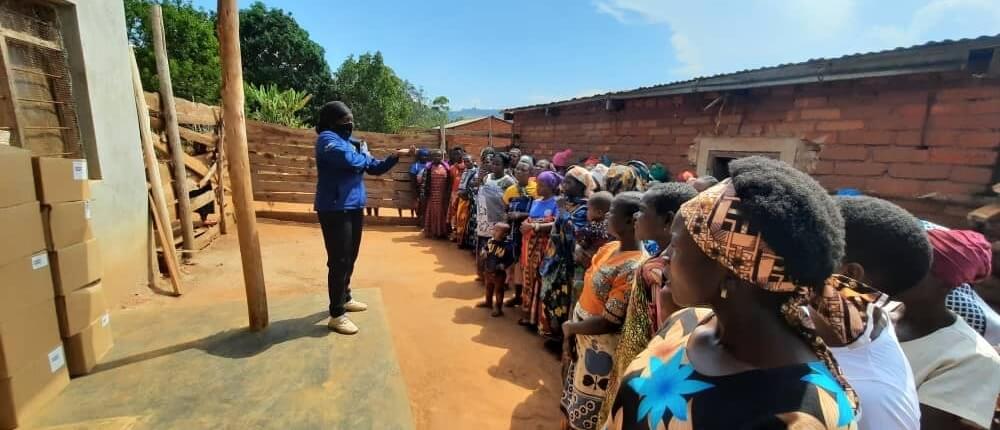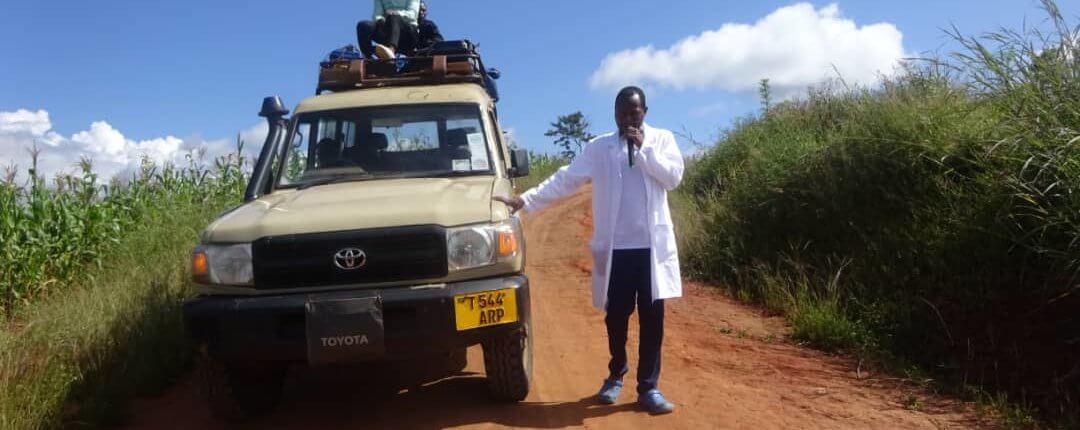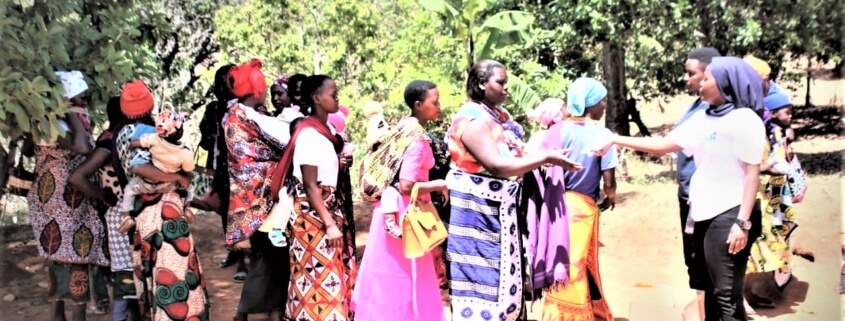Taking Hand Sanitizer “the Extra Mile” to Enhance Health in Tanzanian Villages
A central component of Global Volunteers’ Reaching Children’s Potential Program (RCP) is proper handwashing with soap and water. It’s proven that cleaning hands this way reduces diarrhea by half and is than 300 times more effective than a single vaccine. In the Ukwega Ward, Global Volunteers equips families with outdoor handwashing “stations” which dispense clean water and liquid or bar soap. Proper hygiene is essential to prevent childhood stunting. Families report that the incidence of diarrhea is reduced to nearly zero, and small children gain weight and develop on schedule when proper handwashing habits are followed. To amplify this success during the COVID-19 pandemic, Global Volunteers solicited a donation of a shipping container – roughly 50,000 units – of hand sanitizer for the five villages of the Ukwega Ward. RCP staff traveled “the extra mile” by jeep the first weeks of November, 2021 to ensure families, schools and dispensaries received the packages.
Since the beginning of the pandemic, Global Volunteers’ staff in the Ukwega Ward have maintained rigorous home visits, workshops and community meetings to inform families enrolled in RCP how to optimize their protection from coronavirus. The womens’ co-ops have produced masks and liquid hand soap to meet local health protocols. The country began COVID-19 vaccinations in July, 2021, and the Ipalamwa General Clinic (IGC) received the first supplies of the vaccine in September. About nine percent of the country’s population has been vaccinated to date. Meanwhile, volunteers on resumed programs to Tanzania are required to be fully vaccinated and follow all local health and safety requirements.

“Africans believe in something that is difficult to render in English. We call it “ubuntu, botho”. It means the essence of being human. You know when it is there and when it is absent. It speaks about humaneness, gentleness, hospitality, putting yourself out on behalf of others, being vulnerable. It embraces compassion and toughness. It recognizes that my humanity is bound up in yours, for we can only be human together.”
Bishop Desmond Tutu
The donation from Dollar Only Wholesale of Arizona was shipped from the U.S. to the port in Dar es Salaam and transported overland to the distribution points in the Ukwega Ward. From there, RCP staff loaded the boxes into Global Volunteers vehicles for delivery to all five villages. At each stop, villagers were instructed on the proper storage and use of the hand sanitizer – which isn’t to replace use of the handwashing stations – but intended for extra protection at times when family members aren’t at home and can’t access soap and clean water. The campaign is augmented with materials from district and national government offices. Families have been very receptive to both the new supplies and informational materials.

At the onset of the pandemic, Global Volunteers worked through traditional communications channels on sensible and effective messaging to maximize village compliance with COVID-19 prevention strategies. Village leaders called community members in small groups to reinforce what the Ipalamwa General Clinic announced on protection from the virus, keeping in mind the very nature and fabric of village life – interdependence, mutuality, and togetherness – discourage social distancing.

RCP caregivers use flip charts to illustrate preventative measures, COVID-19 symptoms, interventions and how to obtain care with RCP families during home visits. At these meetings, they demonstrate and reinforce mask wearing, proper hand washing with soap and sanitized water and social distancing, and supply liquid soap produced by the RCP family co-ops. Throughout the pandemic the Ukwega Ward’s standard rate of illness and death hasn’t increased, so it appears the precautions have protected village families in large measure. There have been 26,196 infections and 725 coronavirus-related deaths reported in the country since the pandemic began.
Read More About Global Volunteers’ Response to COVID-19 in the Ukwega Ward:




Leave a Reply
Want to join the discussion?Feel free to contribute!